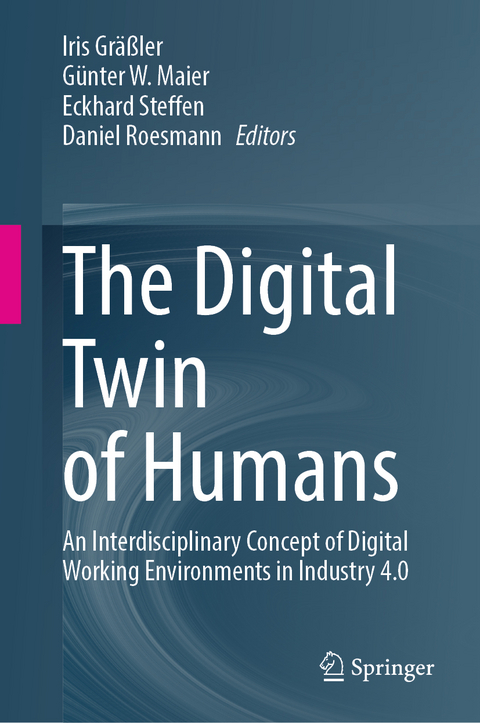
The Digital Twin of Humans
Springer International Publishing (Verlag)
978-3-031-26103-9 (ISBN)
This book provides an interdisciplinary concept of digital working environments in industry 4.0 to enable the implementation of the digital twin of humans.
Information and communication technology is penetrating all areas of daily life at a rapid pace in private and professional areas. These technologies enable companies to aggregate huge volumes of data. Collected personal data of employees creates the opportunity of a digital representation of the human being itself, that is conformant with the definition of a digital twin. These digital twins of humans include selected characteristics and behaviour of the humans, that are linked to models, information, and data. According to existing trend studies, the digital twin of humans is a technology that will have a significant impact on the economy, society, and people. It is important to consider the regulatory framework for the use of personal data and threats of misuse.
This book will be of use to researchers and professionals in industry.
Prof. Dr.-Ing. Iris Gräßler holds the Chair of Product Creation at the Heinz Nixdorf Institute of the Paderborn University. She is member of the NRW research program "Design of flexible working environments - human-centered use of Cyber-Physical Systems in industry 4.0". Prof. Gräßler's research focus lies on Model-Based Product Creation. On basis of models, cause effect relations are objectively explained and thus actively shaped. Main attention lies on Intelligent Technical Systems, i.e. adaptive configurable mechatronic systems and cyber-physical systems.
Part I Fundamentals.- The digital twin of human.- The role of digital twins in socio-technical systems.- Part II Planning of the digital and networked work.- Enhancing the risk management for digitalization projects in the context of social technical systems.- Procedural justice and automated decision making: seven rules to design fair decision making systems.- External crowd working.- Part III Implementation of the digital twin of humans.- Intelligent assistance systems: Assistive strategies and their effects.- Work Autonomy and Adaptive Digital Assistance in Flexible Working Environments.- Individual assembly guidance.- Human factors in assembly systems of the future.- Part IV The effects of the digital twin of humans.- The digital twin of humans as a perceived threat: Negative effects on relationships with colleagues and superiors at work?.- Signed graphs in social network analysis.- How will genetic and biographic data interact to shape our lives?.- How does the digital transformation affect skills and training? A task-based approach.
| Erscheinungsdatum | 18.05.2023 |
|---|---|
| Zusatzinfo | X, 270 p. 45 illus., 31 illus. in color. |
| Verlagsort | Cham |
| Sprache | englisch |
| Maße | 155 x 235 mm |
| Gewicht | 577 g |
| Themenwelt | Technik ► Elektrotechnik / Energietechnik |
| Schlagworte | Design of Flexible Working Environments • Digital Twin of Humans • Digital Twin of Persons • Human-Centered Use of Cyber-Physical Systems • User Modelling in Industry 4.0 • Working 4.0 |
| ISBN-10 | 3-031-26103-8 / 3031261038 |
| ISBN-13 | 978-3-031-26103-9 / 9783031261039 |
| Zustand | Neuware |
| Informationen gemäß Produktsicherheitsverordnung (GPSR) | |
| Haben Sie eine Frage zum Produkt? |
aus dem Bereich


